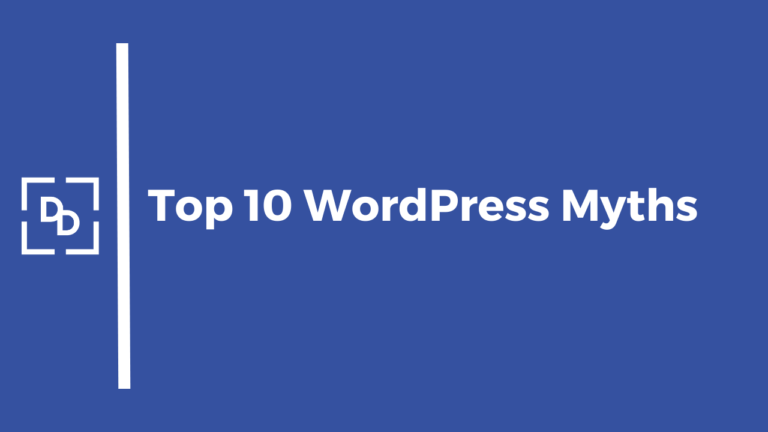DuckDuckGo Review
Search Engines have become an essential tool for finding information on the internet.
Among the many search engines available, Google has been the dominant player, with over 90% of the global market share.
However, there is a lesser-known search engine that has been gaining popularity in recent years – DuckDuckGo
In this blog, we’ll explore what DuckDuckGo is and how it differs from Google

What Is DuckDuckGo?
DuckDuckGo is a search engine that was founded in 2008 by Gabriel Weinberg, headquartered in Paoli, Pennsylvani.
It is known for its privacy-centric approach to search and its commitment to not track its users. DuckDuckGo has grown in popularity in recent years, particularly among those who are concerned about online privacy.
It doesn’t track users or collect personal information, and it uses a variety of sources to generate search results. These sources include its own web crawler, third-party APIs, and crowdsourcing.
DuckDuckGo’s search results are displayed in a simple and easy-to-use interface that doesn’t include ads or sponsored content.
How does DuckDuckGo differ from Google?
DuckDuckGo is getting popular due to various reasons like:
Privacy: DuckDuckGo is known for its strict privacy policy, which means that users’ online activity is not tracked or recorded. This provides a higher level of privacy than other search engines, particularly Google, which collects a vast amount of user data to personalize its search results and display targeted ads
Unbiased search results: DuckDuckGo doesn’t personalize search results based on a user’s search history or online behavior. This means that users are more likely to receive unbiased search results that are not influenced by their past searches or online activity
Fewer Ads: DuckDuckGo’s minimalist interface means that there are no distracting ads or sponsored content. This provides a more streamlined and enjoyable search experience for users who are tired of being bombarded with ads and other distractions
No filter bubble: DuckDuckGo’s search results are not personalized, which means that users are not trapped in a “filter bubble” where they only see information that confirms their existing beliefs. This can be particularly important for users who want to broaden their horizons and learn about new topics
Improved security: DuckDuckGo uses HTTPS encryption by default, which provides an additional layer of security when searching online. This can be particularly important for users who are concerned about cyber threats and want to protect their personal data from being intercepted by hackers

Did You Know?
DuckDuckGo was founded in 2008 by Gabriel Weinberg and is known for its privacy-centric approach to search
Limitations of using DuckDuckGo
Limited features: DuckDuckGo offers fewer additional features than Google, which may be a drawback for users who rely on Google Maps, Google News, and other Google services
Less comprehensive search results: DuckDuckGo’s search results may not be as comprehensive as Google’s, particularly for niche or obscure topics
Lack of personalization: While some users may appreciate the lack of personalized search results, others may find that personalized search results are more useful
Limited language support: DuckDuckGo may not be as effective in providing search results in languages other than English. While it does support multiple languages, it may not have the same level of coverage as other search engines
Limited web crawling: DuckDuckGo relies on a combination of sources to generate its search results, including its own web crawler, third-party APIs, and crowdsourcing. While this approach can provide some advantages, it may also result in a smaller index of websites than those provided by larger search engines
Fun Fact
DuckDuckGo is an open-source search engine, meaning that its source code is publicly available for developers to access and modify. This allows for greater transparency and community involvement in the development of the search engine
Interesting facts about DuckDuckGo
Privacy: DuckDuckGo is well-known for its privacy policy, which ensures that user data is not tracked or recorded. In 2020, the company announced that it had surpassed 100 million daily search queries, showing that there is significant demand for a privacy-focused search engineGrowth: DuckDuckGo has grown significantly since its launch in 2008. In 2019, the company reported that its search traffic had grown by 54% in the previous year, indicating a growing interest in privacy-focused search engines
Growth: DuckDuckGo has grown significantly since its launch in 2008. In 2019, the company reported that its search traffic had grown by 54% in the previous year, indicating a growing interest in privacy-focused search engines
Instant Answers: DuckDuckGo’s “Instant Answers” feature provides users with quick and accurate answers to their search queries, without having to click through to external websites. This feature can be particularly helpful for quick reference queries, such as the current time or weather.
Bangs: DuckDuckGo’s “Bangs” feature allows users to search specific websites or services directly from the search bar. For example, typing “!w” before a search query will search Wikipedia, while typing “!g” will search Google. This feature can save time and improve search accuracy.
Non-profit: Unlike many other search engines, DuckDuckGo is a non-profit organization. This means that its primary focus is on providing a valuable service to users, rather than generating revenue.
Conclusion
DuckDuckGo is a unique search engine that prioritizes user privacy and provides a range of helpful features. Its growth and popularity demonstrate a growing demand for privacy-focused alternatives to traditional search engines like Google.
While it may not have as many features or comprehensive search results, it provides a streamlined and secure search experience for those who prioritize privacy. Ultimately, the choice between DuckDuckGo and Google comes down to personal preferences and priorities.
Subscribe to our Newsletter to stay updated on all news related to this topic. If you have any questions, email us on mail@digital-doorway.com
Frequently Asked Questions
Yes, DuckDuckGo is designed to be a private search engine. It does not track or store any personal information or search history. This means that users can search the web without worrying about their data being collected or shared.
Yes, DuckDuckGo is available as a mobile app for both iOS and Android devices. The app provides the same privacy features and search results as the desktop version of the search engine.
DuckDuckGo's search results may be less comprehensive than Google's, as the search engine uses a smaller index of websites. However, DuckDuckGo also uses a range of sources to generate search results, including its own web crawler, third-party APIs, and crowdsourcing. This can result in different search results for the same query
Yes, DuckDuckGo can be used in conjunction with other search engines. The search engine offers a feature called "Bangs," which allows users to search specific websites or services directly from the search bar. For example, typing "!g" before a search query will search Google, while typing "!w" will search Wikipedia.
Yes, DuckDuckGo is available in multiple languages, including Spanish, French, German, and Chinese. However, its coverage in languages other than English may not be as comprehensive as other search engines
DuckDuckGo generates revenue through advertising, just like other search engines. However, the ads displayed on DuckDuckGo are not based on user data or search history, and they do not track users. Instead, they are contextually targeted based on the search query.
Need Help?
Interested in scaling your business or get started in Digital Marketing?






